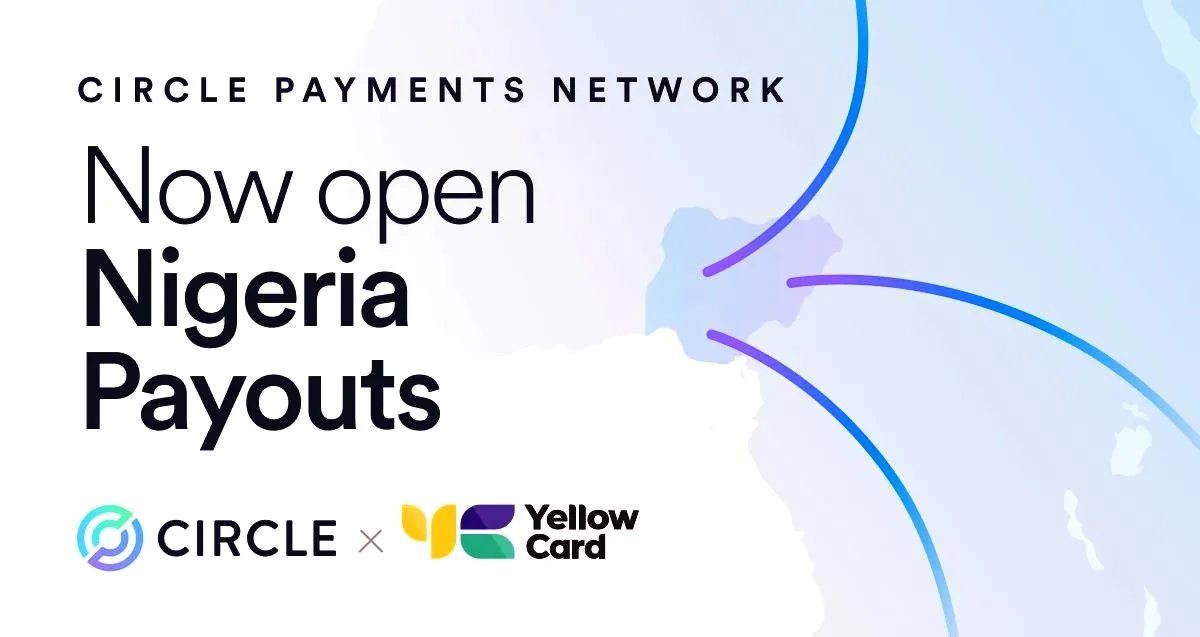Yellow Card, a leading stablecoin platform in Africa, has partnered with Circle Payments Network (CPN) in a major development for the African digital finance sector.
The partnership was announced on Wednesday as part of an effort to simplify and accelerate cross-border and domestic transactions for millions of users in Nigeria, Africa’s largest economy.
It enables real-time payouts in Nigerian Naira (NGN) using USDC, offering faster and more efficient transactions.
This integration is expected to enhance key sectors such as remittances, gig economy payments, trade finance, and payroll by leveraging the power of blockchain technology.
The partnership addresses banking system challenges
The joint force addresses a long-standing issue with traditional banking systems’ high fees and slow processing times.
According to the World Bank, Nigeria received about $20 billion in remittances in 2024, often with considerable transaction costs.
A 2023 IMF study also noted that stablecoin-based systems could reduce these costs by up to 70 percent, which could transform financial access for millions of Nigerians and the wider African population.
“With Yellow Card, we’re expanding USDC access and use across Africa – supporting digital dollar use cases that fuel economic opportunity and financial inclusion,” Circle posted on X, underscoring the broader implications of the move for economic empowerment in emerging markets.
Though this innovation is promising, it doesn’t come without risks. Yellow Card has been scrutinised due to concerns over operational reliability.
The platform holds a 1.8-star Trustpilot rating and has faced user complaints, including account freezes. These issues highlight the still-uncertain terrain that crypto platforms must navigate, particularly in regions where financial fraud and regulatory ambiguity are ongoing challenges.
As crypto adoption continues to rise across Africa, especially in countries with high inflation and weak banking infrastructure, partnerships like this could become the norm rather than the exception.
The collaboration between the two companies aligns with a global shift toward stablecoin-based treasury operations and B2B settlements, areas previously dominated by conventional banking institutions.
However, long-term success will depend on user trust, regulatory clarity, and infrastructure stability.
About Yellow Card and Circle
Founded to make digital assets more accessible across Africa, Yellow Card operates in over 20 African countries and has processed more than $6 billion in transaction volume.
The company has increasingly positioned itself as a bridge between traditional finance and crypto-based payments.
Recently, the firm announced a partnership with Visa that allows Yellow Card users in select countries to convert USDC into local fiat using Visa Direct, a global real-time payment platform.
Meanwhile, Circle, the issuer of USDC, has been expanding its global footprint, especially in emerging markets, where stablecoins are becoming tools for daily financial activity such as saving and remitting to pay workers and settle trade.
















